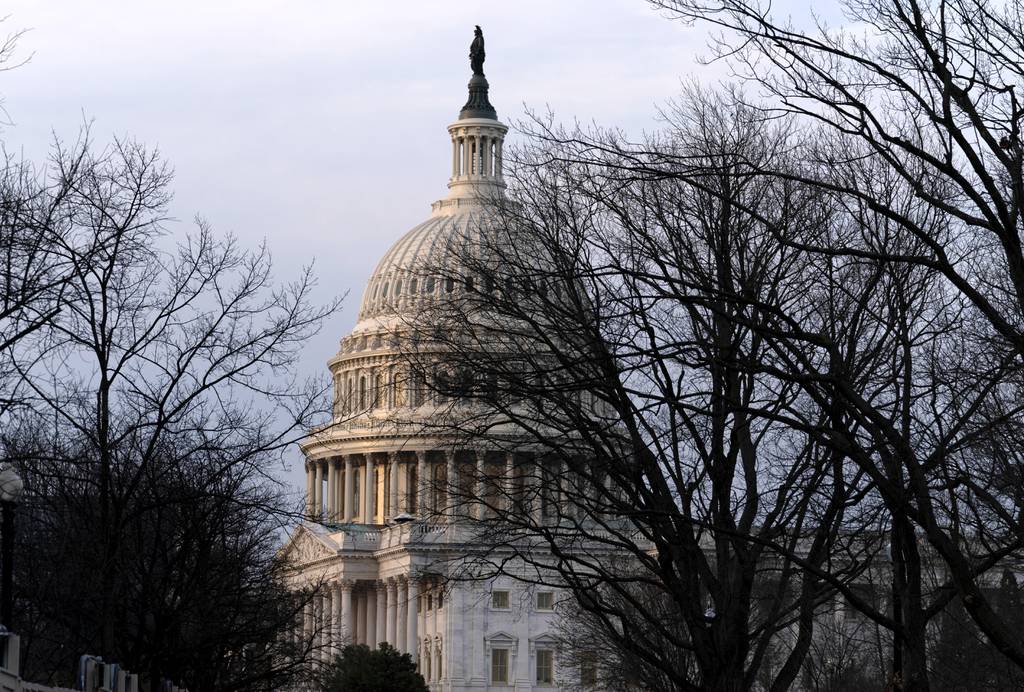Over the past month, U.S. lawmakers proposed separate pieces of legislation to restrict the president’s ability to sell weapons to other countries. Further congressional action on such transfers may be spurred with recent news that Egypt planned to covertly send rockets to Russia and that the Biden administration may try to override congressional restrictions on foreign aid to Ukraine.
Regardless, flaws in existing legislation, ideological divisions and the executive veto over foreign policy issues make enacting new laws that restrict arms transfers unlikely.
U.S. arms transfers are a foreign policy tool over which the executive branch has curiously managed to claim almost all authority. In fact, Congress has never successfully stopped an arms sale. While the president has the power to veto any legislation from Congress, the legislature has no ability to veto the president.
Members of Congress have introduced two pieces of legislation that would broadly restrict the president’s power over weapons transfers. First, Senators Chris Murphy (D-CT) and Mike Lee (R-UT) proposed a resolution that would use Section 502B of the Foreign Assistance Act of 1961 to force the State Department to issue a human rights report on Saudi Arabia.
Suspension provision
This little-known amendment allows Congress to request such a report and pass a joint resolution to end this aid if the arms transfer recipient abuses human rights. If the report is not provided in 30 days, then aid being delivered to the country in question is suspended. The current resolution’s goal is to stop sending military aid to Riyadh.
Success is unlikely, as a joint resolution needs a veto-proof majority. Because it is legislation, the president can still veto such a measure, which seems likely given his apparent desire to continue arming the Saudis.
Furthermore, the potential of the legislative veto found in Section 502B rests on shaky legal precedent that the Supreme Court has never reviewed. The Supreme Court has, however, ruled the president must be given the opportunity to use his veto power on a bill before it is enacted into law, rendering any legislative veto – including 502B’s 30-day legislative veto – unconstitutional.
The second piece of legislation was introduced by Representative Gregory Meeks (D-NY) and is known as the Safeguarding Human Rights in Arms Exports Act of 2023. This legislation would expand the “Leahy Laws,†which govern U.S. security assistance and prevent the U.S. from sending defense articles to individual military units within a country that commit gross violations of human rights. The expansion would place these restrictions on arms sales in addition to security assistance.
This legislation has a better chance of passing because much its language codifies elements already contained in Biden’s newly-released Conventional Arms Transfer (CAT) policy. It is therefore less likely for Biden to veto legislation that lines up with his previously stated policy goals.
Nonetheless, hawkish House Republicans will likely oppose the legislation. Thus, to succeed, members of Congress supporting the Safeguarding Human Rights in Arms Exports Act will likely need to moderate this legislation to restrict Biden, while not stopping arms transfers to countries that House Republicans view as key to their foreign policy.
Leahy Laws
The Leahy Laws themselves came into being in this way when former Senator Patrick Leahy (D-VT) limited his legislation to units rather than entire countries, which he initially proposed. By moderating the restrictions, Leahy allowed congressional Republicans to feel like they were restricting President Bill Clinton without changing their foreign policy.
There are two possible upcoming debates over executive authority on arms transfers that may also lead to legislation. The first involves the Biden administration attempting to avoid congressional opposition to funding Ukraine through Lend-Lease provisions passed last year. Republican control over the House, combined with executive overreach, may sour congressional opinion of this provision and lead to an overturn of the Lend-Lease provisions for Ukraine.
The second possible debate is that Egypt, who has purchased over $5.8 billion in U.S. weapons and received over $1.3 billion in security assistancesince January 2022, covertly produced weaponsfor Russia to use against Ukraine. In both cases, Congress has previously failed to legislate against the president.
Congress has shown through its recent actions that it wants to more power over the U.S. arms transfers. Regardless, flaws in the proposed legislation, ideological divisions, and executive power over foreign policy make enactment unlikely. As a result, those waiting for Congress to successfully restrict the president on arms transfers might want to pull up a comfy chair, pick out a few podcast series to listen to, and get ready to wait a while.
Jordan Cohen is a policy analyst at the Cato Institute and a Ph.D. candidate in political science at George Mason University.
Jonathan Ellis Allen is a research associate and producer at the Cato Institute.
Have an opinion?
This article is an Op-Ed and the opinions expressed are those of the author. If you would like to respond, or have an editorial of your own you would like to submit, please email C4ISRNET and Federal Times Senior Managing Editor Cary O’Reilly.








